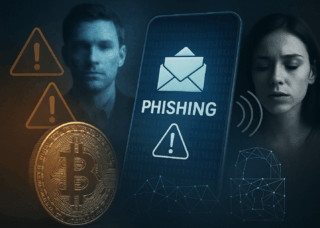The role of a private investigator is shrouded in mystery and intrigue, often dramatized in popular media, but the truth of the profession is both fascinating and essential in a modern legal and social context. Private investigators, also informally known as private eyes or PIs, offer their expertise to clients ranging from individuals seeking personal answers to legal professionals requiring assistance in complex cases. Their work typically involves in-depth research, surveillance, and a variety of field activities, all aimed at gathering and analyzing information that is not readily available to the public.
A private investigator’s toolkit is filled with an assortment of skills that straddle legal knowledge, ethical practice, and technological savvy. With a strong understanding of what is permissible under the law, PIs conduct their operations while respecting privacy and maintaining strict confidentiality. They handle a diverse case load, with tasks that can range from tracing missing persons to uncovering financial fraud, thus impacting legal outcomes in significant ways. The combination of discretion, precise attention to detail, and an analytical mindset are the hallmarks of a successful investigator.

Key Takeaways
- Private investigators provide specialized services requiring discretion and a deep understanding of legal protocols.
- They maintain ethical standards while handling diverse and sensitive cases that influence legal judgments.
- Success in this role is defined by a combination of investigative, analytical, and ethical competencies.
Debunking Common Myths About Private Investigators
Myth #1: Above the Law Many believe that private investigators have unlimited power to achieve their objectives. This is not true; they are bound by the law and cannot act above it. They must respect privacy laws and other legal restrictions during their investigations.
Myth #2: Perpetually Sneaky Behavior Contrary to the image of private investigators always lurking in the shadows, their work often requires a high degree of legality and transparency. Stealth may sometimes be necessary, but it is not a constant state of operation.
Myth #3: Access to Classified Information Some assume private investigators can freely access top-secret government information. In reality, they do not have such clearances and cannot tap into confidential databases such as those belonging to the CIA or FBI.

Myth #4: Uncovering Thrilling Mysteries Daily While the profession can involve interesting cases, the idea they’re always involved in dramatic, movie-like scenarios is exaggerated. Their work often involves examining less glamorous but critical details through public records and other lawful means.
Myth #5: Focused Solely on Infidelity Cases It is a common misconception that private investigators primarily deal with marital infidelity. Their scope of work is much broader, and they handle a variety of assignments beyond domestic matters.
Through these clarifications, it is clear that private investigators’ roles and abilities are often misunderstood and are subject to many myths that don’t reflect their professional reality.
The Real-Life Duties and Responsibilities of a Private Investigator
Private investigators (PIs) often find themselves performing a variety of tasks, each critical to the successful completion of their investigations. Their responsibilities may encompass:
- Computer Research: PIs engage in diligent computer research, sifting through legal records, examining family histories, and scouring the internet for clues related to a case.
- Background Checks: A common task is to conduct background checks on individuals, which can serve both private and corporate clients.
- Evidence Gathering: They collect key information, which necessitates a sharp eye for detail and the ability to analyse disparate data points.
- Surveillance: Private investigators conduct discreet surveillance to observe subjects and gather information without being detected.

A PI’s role also involves interacting with clients and other stakeholders:
- Client Interaction: They must understand a client’s needs, outline potential investigative routes, and manage expectations regarding outcomes.
- Reporting: After gathering evidence, they compile comprehensive reports and present findings in a clear and organized manner.
- Legal Compliance: Throughout the investigation, they are bound by laws and ethical guidelines, ensuring all activities remain within legal boundaries.
Private investigators wield a blend of discretion and precision to uncover critical insights, whether it involves clandestine observation or meticulous record review. They assume a pivotal role in elucidating complex matters and presenting incontrovertible facts.
The Importance of Discretion and Confidentiality
In the realm of private investigations, one cannot overstate the significance of discretion and confidentiality. These two principles act as the foundation of a trusting relationship between the investigator and their client. A private investigator often handles sensitive information which, if disclosed inappropriately, could significantly harm the client’s personal or professional interests.
Confidentiality ensures that information is exchanged only between the authorized parties. For instance, maintaining the privacy of investigations shields the client from public exposure or legal consequences that could arise from the mishandling of sensitive data.
Moreover, discretion in communication is integral. Investigators must engage in discreet interactions with clients to protect the integrity of the information being shared. This subtlety extends to the manner in which private investigators conduct their work; often employing methods that do not draw attention, thus safeguarding the process and outcomes of the investigation.

A private investigator’s role is to obtain and manage information strategically, which includes taking measures to prevent unauthorized access or disclosure. They are trusted to act judiciously in all aspects of their profession, from fact-gathering and analysis to the handling of documentation and reports.
In sum, discretion and confidentiality are not just ethical practices; they are legal imperatives that protect both the client and the private investigator, ultimately defining the professionalism and success of the investigative process.
Legal Boundaries and Ethical Considerations
Private investigators operate within a framework of laws that vary by country and state. They are required to be licensed and must conduct investigations in accordance with the law. For instance, they should not trespass on private property or engage in unlawful surveillance techniques.
Ethical guidelines also play a crucial role in their work:
- Confidentiality: They must protect the privacy of their clients and the information gathered during an investigation.
- Honesty: Their methods should be transparent and based on truth.
- Respect: All parties involved in an investigation should be treated with respect.

Here are some of the key areas where private investigators must be vigilant
| Legal Consideration | Ethical Consideration |
|---|---|
| Restrictions on surveillance | Maintaining client confidentiality |
| Adherence to privacy laws | Conducting investigations honestly |
| Non-interference with law enforcement investigations | Avoiding conflicts of interest |
Certain activities are generally off-limits for private investigators. For example, they cannot impersonate law enforcement, hack into accounts, or install tracking devices without consent. Understanding the legal implications for attorneys and their clients is also essential to ensure compliance.
Private investigators in the U.S. and U.K. have to navigate the permissible boundaries and respect ethical practices, a topic explored in an article on whether it is legal to hire a private investigator in these countries. They must also be conscious of the ethical challenges mentioned on a LinkedIn post, which includes important considerations such as treating all parties with dignity and upholding the law.
The Diverse Range of Cases Handled by Private Investigators
Private investigators (PIs) undertake a wide array of cases, adapting their skills to meet the demands of different situations. They often engage in:
- Background Checks: Confirming personal histories for corporate or personal interests.
- Surveillance: Monitoring subjects discreetly to gather needed information, which is crucial in cases of suspected infidelity or company malfeasance.
Cases commonly handled by PIs include, but are not limited to:
| Type of Investigation | Description |
|---|---|
| Fraud Investigations | Detecting and documenting fraudulent activities in business or personal matters. |
| Domestic Investigations | Investigating suspicions within marriages or families, often including child custody situations. |
| Corporate Investigations | Addressing concerns within businesses, such as employee theft or intellectual property breaches. |
| Criminal Investigations | Assisting law enforcement by gathering evidence on crimes like theft or embezzlement. |
Private investigators also provide support to legal teams by collecting evidence for civil trials, a role prominent in family law matters including divorce or child custody battles. They can also be found working on personal injury cases, workers’ compensation claims, and even missing person searches.
Each case requires a unique approach, employing various techniques like interviewing witnesses, engaging in physical or digital surveillance, and applying forensic analysis when necessary. Private investigators must navigate these varied scenarios with a combination of discretion, thoroughness, and an ever-ready adaptability to changing circumstances.
The Impact of Private Investigators on Legal Outcomes
Private investigators play a critical role in shaping legal proceedings. Their ability to uncover evidence can tip the scales of justice significantly. Attorneys often rely on private investigators to collect high-quality evidence, which may include photographs, video recordings, and financial records. These materials are crucial in building a strong case, as seen in how private investigators can enhance an attorney’s case strategy.
The legal insight provided by private investigators assists in uncovering hidden assets and discovering pertinent information that could alter the outcome of court cases. They operate within the bounds of the law, ensuring evidence is admissible and ethically obtained.
With their expertise, private investigators support the legal framework in various ways:
- Surveillance: Obtaining information through careful monitoring.
- Research: Extensive background checks and data analysis.
- Expert testimony: Offering credible information in court proceedings.
Their contributions shed light on complex matters, helping legal professionals to navigate cases more effectively. The investigative work provided by private investigators is not only a testament to their skill but also to their role in promoting truth and justice within the legal system, as elaborated upon in the discussion of their roles and responsibilities.
Private investigators frequently become an indispensable asset for legal teams, aiding in revealing essential facts that impact case strategies and, ultimately, legal decisions. The information and evidence they provide can crucially sway a case, whether it involves civil or criminal matters, demonstrating their pivotal role in the dynamic landscape of the legal proceedings.
Skills and Qualities That Define a Successful Private Investigator
A successful private investigator is often defined by a unique set of skills and qualities that enable them to navigate complex investigations with professionalism and effectiveness.
Analytical Thinking: They must possess a sharp analytical mind to deduce patterns and connections within the information they gather.
- Attention to Detail: Essential in reviewing evidence and noting subtle inconsistencies.
Technical Proficiency: Modern investigations require familiarity with technology and surveillance equipment.
- Cyber Skills: They often employ digital tools for research and information gathering.
Communication Skills: Private investigators need excellent written and verbal communication abilities to relay information clearly to clients or provide testimony in court.
- Interviewing Proficiency: The ability to conduct thorough interviews and interrogations is critical. For insights on enhancing these skills, refer to guidance on conducting mock interviews.
Emotional Resilience: Investigations can be emotionally draining, and it’s imperative that investigators maintain professional detachment.
- Stress Management: They often deal with sensitive subjects and must navigate these carefully.
Patience and Persistence: These qualities cannot be overstated, as investigations can be lengthy and require sustained effort without immediate results. Successful investigators demonstrate an extraordinary level of patience.
- Diligence: Every lead must be followed, and challenges must be met with consistent effort.
Interpersonal Skills: Despite the solitary nature of the work, investigators must possess strong people skills to interact with a range of individuals during their investigative work. Learn about the importance of this trait for private investigators at Precise Investigation.
Each trait contributes to an investigator’s ability to uncover truths and provide clarity to complex situations.
Frequently Asked Questions
The role of a private investigator is multifaceted, involving various skills, training, and legal know-how. These FAQs provide insight into the essential aspects of a career in private investigation.
What are the essential skills necessary for a career as a private investigator?
A career as a private investigator requires a combination of analytical thinking, keen observation, effective communication, and technological proficiency. These skills enable an investigator to gather and interpret information, conduct surveillance, and interact with clients and witnesses effectively.
How can one obtain training for a career in private investigation?
Training for a career in private investigation can be obtained through various avenues, including criminal justice programs at community colleges, dedicated PI training courses, or on-the-job training under a licensed investigator’s supervision.
What educational background is required to become a private investigator?
While some private investigators have a background in criminal justice or law enforcement, it is not always mandatory. Various degrees can provide a foundation for this field; however, a relevant degree along with state-required licensure is often necessary.
What other professions are similar to private investigation?
Professions similar to private investigation include law enforcement officers, forensic analysts, and security consultants. These roles share the common thread of investigative work or law enforcement components.
In what ways are private investigators subject to legal restrictions?
Private investigators must operate within the bounds of the law, observing state and federal regulations regarding privacy, trespass, and surveillance. They cannot arrest individuals or operate without a required license in most states.
What are the primary responsibilities and duties of a private investigator?
Primary responsibilities of a private investigator include conducting detailed investigations, surveillance, gathering evidence, and preparing reports. They may also interview witnesses, research legal and financial records, and work on a variety of cases ranging from personal to corporate issues.






